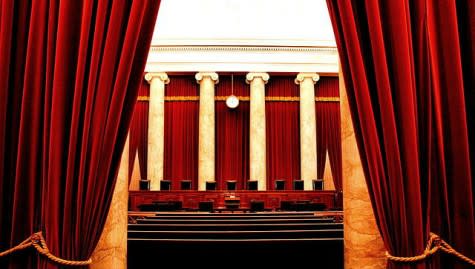Supreme Court to rule on police shooting
Amid nationwide debate over the authority of police to use their guns in enforcing the laws, the Supreme Court on Friday agreed to decide whether police may be sued if they take action that provokes someone to be violent, and then shoot that individual in response.
That was one of five new cases the Justices added to their docket for decisions in the current term. It is possible that, by the time at least some of the cases come up for hearings, there will be a new ninth Justice on the bench.
At issue in the new police case, Los Angeles County v. Mendez, is a legal rule that one federal appeals court has adopted, but others refuse to follow. It takes away the legal immunity of officers for the use of “excessive force” – here, shooting two homeless people in the shed they occupied – if the officers’ actions provoked a violent response. The response at issue in this case was that one of the individuals who was shot and wounded raised a BB gun and pointed it at officers after they had broken into the shed without a search warrant.
In general, police have legal immunity for their actions in the line of duty, unless they violate someone’s clearly established constitutional rights. Over the years, courts have taken differing approaches on when such rights have been spelled out clearly. Police shootings in recent years have been involved more often in such cases.
Also, in a trio of cases newly granted review on a single issue, the court will be sorting out when a workers’ health or pension benefit plan is exempt from federal government regulations because it is a “church plan.” That has a major impact on the scope and reliability of plan benefits of workers, especially those who work for major chains of hospitals operated by or affiliated with religious organizations.
One implication of this review is that worker benefit plans that qualify as “church plans” do not have to obey the birth-control mandate under the new federal health care law, the Affordable Care Act. The outcome of Supreme Court review on that aspect could be affected by what the new Trump administration does about the health care law. If it is repealed, the birth-control mandate could be nullified.
Even beyond that aspect, however, the new controversy is of major legal significance for a large group of hospital and other care-giving organizations that are operated by or are affiliated with religious organizations. For years, the government treated them as “church plans” exempt from the requirements of the Employee Retirement Income Security Act of 1973. More recently, however, those exemptions have been challenged in dozens of court cases across the country, resulting – so far – in the loss of the ERISA exemption, on the theory that a “church plan” is only one that was originally set up by a church or a group of churches, not one that is only affiliated with churches or similar worshipping entities as the manager of their benefit plans.
Here, in summary, are the other issues that the Justices also agreed to review:
First, a request to clarify the federal law that governs the splitting of a veteran’s military retirement pay when the veteran and a spouse are divorced. The issue arises when a veteran opts to forfeit some of a retirement pension being shared with a spouse in order for the veteran to receive benefits for a disability related to military service. Disability benefits cannot be split with a divorced spouse.
Second, in a case of major importance in patent law, a plea to clarify when parent holder’s rights to the exclusive sale or use of a patented item are wiped out because the article has been sold, either in the U.S. or overseas.
Third, whether ordinary mail, instead of formal diplomatic channels, can be used as a means of exchanging documents in disputes under an international treaty governing the legal relationships between nations.
Legendary journalist Lyle Denniston is Constitution Daily’s Supreme Court correspondent. Denniston has written for us as a contributor since June 2011 and he has covered the Supreme Court since 1958. His work also appears on lyldenlawnews.com.
Recent Stories on Constitution Daily
Is the birth-control issue passing to a new government?
Flag burning and the First Amendment: Yet another look at the two


